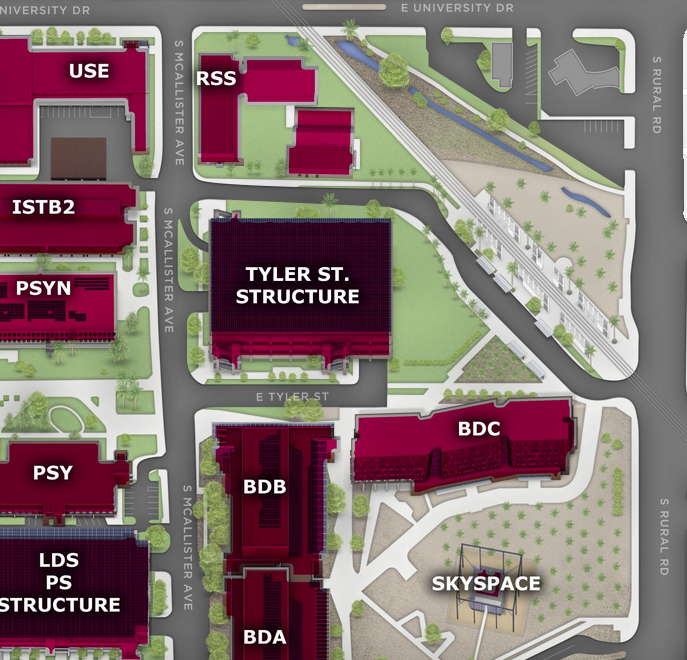HF General Awareness & First Aid/Medical Seminars
Please select from the list below to register. All sessions will take place in Biodesign B, room 105.
[sign_up_sheet]
Room 105 is located on the first floor of the Biodesign B building; 727 E Tyler St, Tempe, AZ 85281. It can be found at the opposite end of the hallway from Charlie's Cafe.
Please refer to the ASU campus map for building locations and Parking and Transit Services for visitor parking information such as locations and rates. The nearest parking structure is Tyler Street, directly adjacent to Biodesign B, which provides paid hourly parking.
